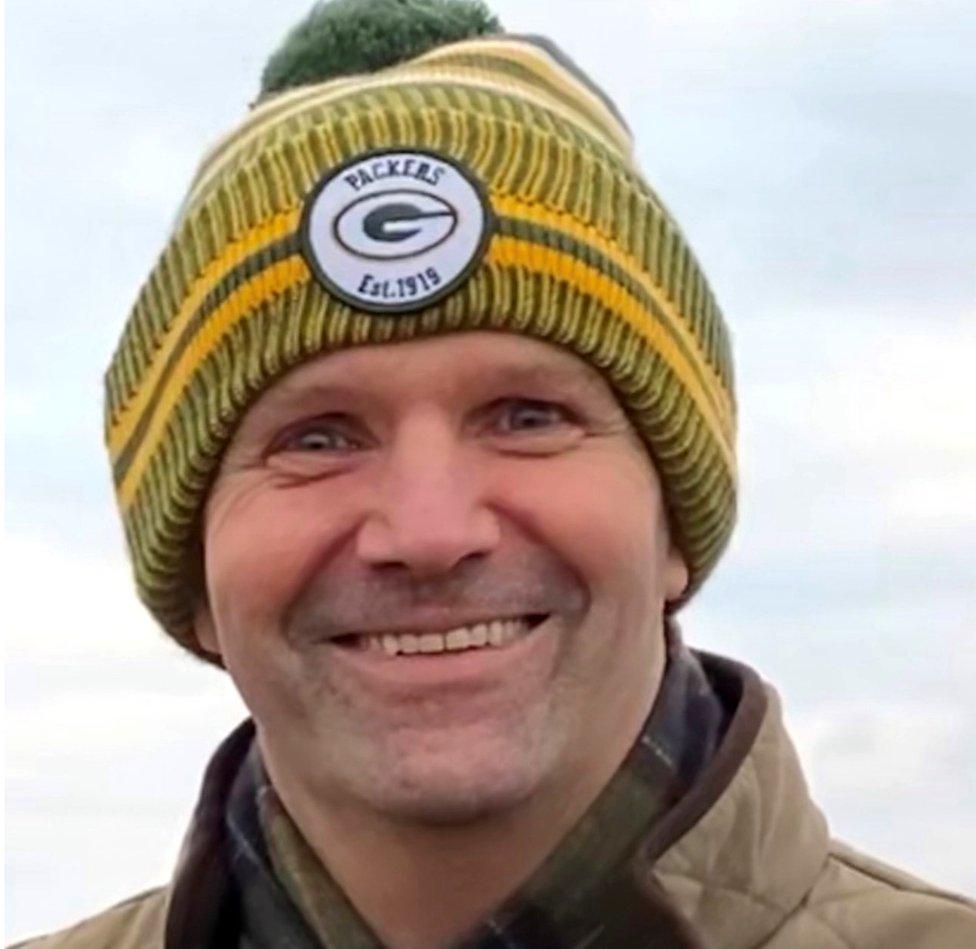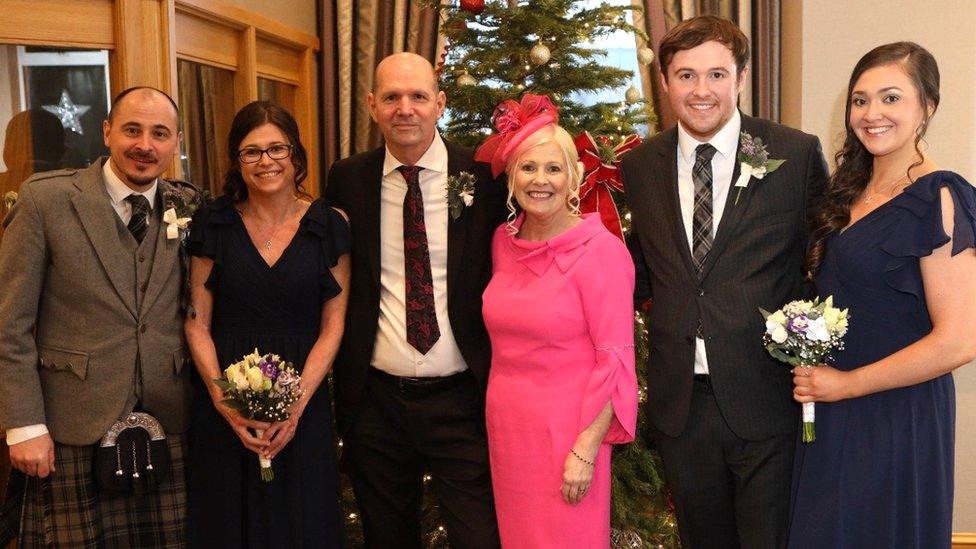Dad had a stroke but his symptoms were different
- Published

Tony Bundy was healthy and active but suffered a stroke in June
A devastated family wants a review of medical advice on strokes to raise awareness of less well-known symptoms.
Tony Bundy died from a stroke in June after his condition was not picked up using routine tests.
The most-known symptoms such as a drooping face, arm weakness and difficulty speaking were not there.
Now the Bundys, from Tullibody, Clackmannanshire, want to make more people aware of other signs to stop their tragedy happening to others.
Father-of-four Tony was just 53 when he died. His widow, Selena said he was active and healthy, but had started to feel unwell over a period of several weeks.
The symptoms got worse until one day, he collapsed.
"He couldn't stand up," said Selena. "He couldn't take weight on his legs at all and he was really sick and dizzy.
"He just felt different - he had cold sweats and really bad colour. Those were the main things that were happening.

Tony's wife Selena said the family was devastated about his death
Because his symptoms were not the ones most people associate with stroke, he was not treated for it straight away.
Tony collapsed while out shopping and was taken to hospital. He died after having a Basilar Artery Ischaemic Stroke - which has different symptoms to more common types of stroke.
Selena said losing her husband was a huge and sudden shock.
"Everybody that knew Tony liked him, and we are just all devastated he is not there any more. We just don't want other people to go through this.
The Stroke Association says a stroke will strike someone in the UK every five minutes.
It can happen to anyone, of any age, at any time, so it is vital to know how to spot the signs of a stroke in yourself or someone else.
The standard checklist for identifying if someone is having a stroke is called the "Fast" test, an acronym that highlights certain symptoms:
Facial weakness: Can the person smile? Has their mouth or eye drooped?
Arm weakness: Can the person raise both arms?
Speech problems: Can the person speak clearly and understand what you say?
Time to call 999: if you see any of these signs.
The association says in most cases this is a good indicator of stroke and it is an easy acronym for people to remember.

Tony Bundy was a much-loved father of four
John Watson, who is the charity's Scottish spokesman, says in all cases, speed is the key.
"Always our messaging is about getting help quickly. If that is through the Fast test then great, but if it is somebody turning up at hospital with some difficult symptoms, it could be a headache, it could be nausea, dizziness.
"We need to make sure people who are receiving at the hospital have the time and resources to treat people and examine quickly every patient that turns up, and also have access to scanners - which is the best way of identifying if a stroke is actually happening."
Tony Bundy's son James, who is a Conservative councillor with Falkirk Council, would now like to see the Fast test being extended to include the less familiar symptoms.
He said it does not have to be complicated.
"I am looking at other countries around the world, particularly in some states in the US and they use "Be Fast" with 'b' standing for balance, 'e' standing for eyes and 't' standing for throwing up rather than time.
"It is keeping that message of acting fast whilst incorporating a lot of the symptoms that my dad had."

Tony Bundy and his daughter Anthea who is now fundraising for the Stroke Association
As the family come to terms with their loss, daughter Anthea is fund-raising for the Stroke association.
She said the family was shattered by what happened, and wants to push for changes that will save other lives.
"That is why we are trying to get the different symptoms out into the public - the inability to stand, the vertigo, the dizziness and sickness the lack of focus in the eyes.
"We knew something wasn't right we just didn't know what it was.
"Maybe by getting this message out there - it won't help my dad - but it will maybe save someone else in the future."
A Scottish government spokesperson said its condolences went out to the family on their "immeasurable loss".
They said: "The Scottish government is committed to ensuring that people who have had a stroke receive the best possible care as quickly as possible to enable them to live longer, healthier and more independent lives.
"We published our refreshed Stroke Improvement Plan in June 2023, which sets out our vision for minimising preventable strokes and ensuring timely and equitable access to life-saving treatment. NHS Boards are also required to demonstrate how they are actively upskilling and maintaining the knowledge of their stroke workforce.
"The plan commits us to establishing current public understanding of stroke symptoms and whether certain groups require different messaging. We will work with third sector organisations to consider the most effective way of raising public awareness of stroke symptoms."